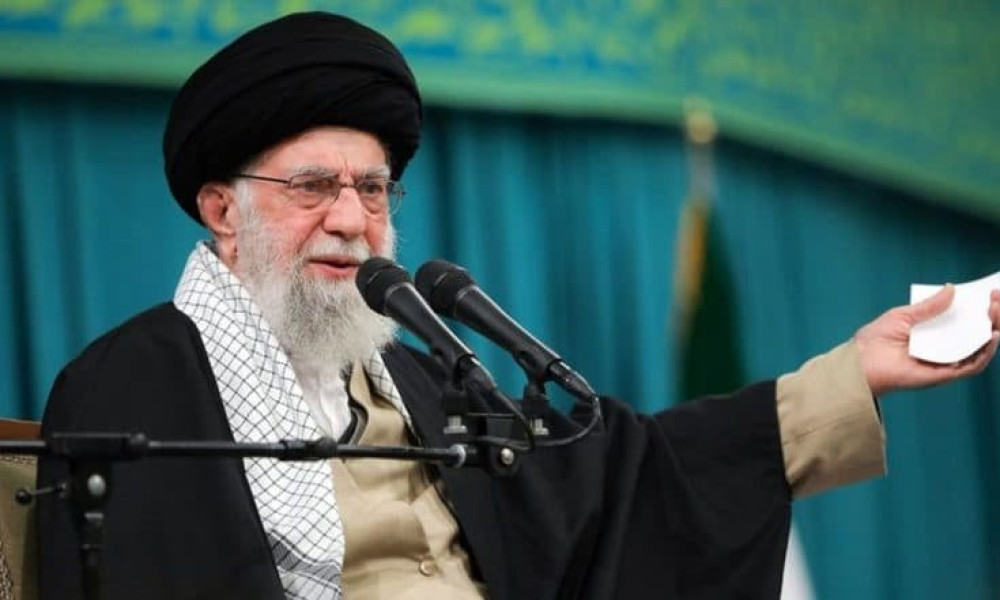On June 13, tensions escalated dramatically in the Middle East as Israel launched a strike on Iran’s capital, targeting military sites tied to the country’s nuclear program. This attack was not just a tactical military operation; it resulted in the deaths of three high-ranking Iranian military officials. The situation has ignited fears of a larger conflict between Israel and Iran.
The Israeli Defence Forces (IDF) claimed responsibility for eliminating top commanders, including Mohammad Bagheri, the Chief of Staff of the Iranian Armed Forces, and Hossein Salami, the Commander of the Islamic Revolutionary Guard Corps (IRGC). Following these strikes, Iran’s Supreme Leader, Ayatollah Ali Khamenei, vowed that Israel would face severe consequences for its actions. Khamenei accused Israel of revealing its true malicious nature, particularly by targeting civilian structures.
Iran swiftly responded to the attacks by invoking Article 51 of the United Nations Charter, which addresses the right to self-defense. This legal framework is crucial as it allows a member state to defend itself when subjected to an armed attack. Iran’s foreign ministry declared that Israel’s actions were not just an assault on its military but a clear violation of its sovereignty and national integrity.
In essence, Article 51 underscores that a member state can resort to individual or collective self-defense in the event of aggression. The article was adopted in the wake of World War II, emphasizing the importance of maintaining international peace while allowing nations the right to defend themselves. The language of Article 51 clearly states that any measures taken in self-defense must be reported to the Security Council, which retains the primary responsibility for ensuring peace and security worldwide.
Iran’s usage of this article is not unprecedented. It has relied on Article 51 before. Notably, in April 2024, Iran engaged in a significant attack against Israel, asserting its rights after experiencing its own military setbacks. This context reveals a pattern: when perceived under attack, Tehran opts to reference its right to self-defense, thereby justifying its military responses.
Following the latest airstrikes by Israel, Iran’s position is likely to remain steadfast, suggesting that it will retaliate under the aegis of Article 51. The situation continues to spiral, and Iran’s strategic move has drawn international attention.
Adding fuel to the fire, Pakistan has voiced its support for Iran in this tense scenario. The Pakistani Foreign Office criticized Israel’s actions and reaffirmed Iran’s right to self-defense as outlined in Article 51. This endorsement indicates a potential shift in regional alliances and highlights the interconnectedness of geopolitical dynamics in the region.
As events unfold, the implications of invoking Article 51 will be examined on multiple fronts. The right to self-defense is defined but can be subjectively interpreted based on each country’s perspective. Iran’s assertion of this right is an act of defiance against perceived aggressors and underscores its intention to protect national interests at any cost.
The stakes are high, and the balance of power in the Middle East is increasingly fragile. Both Israel and Iran have significant military capabilities, and any escalation could lead to broader conflict not just between them but potentially dragging in other regional players.
The international community will be watching closely as decisions made now could have long-lasting repercussions. Article 51 provides a legal justification but navigating this complex scenario requires strategic foresight.
In conclusion, the invocation of Article 51 by Iran amidst ongoing hostilities with Israel raises fundamental questions about national sovereignty, self-defense, and the role of international law in conflict resolution. It highlights the challenges faced by nations in defending their territory and interests while adhering to global diplomacy norms.
As they say in international relations, one nation’s act of defense can quickly become another’s pretext for escalated aggression, making the situation increasingly volatile. Only time will tell how this latest clash will shape the future of Israel, Iran, and the broader geopolitical landscape.

